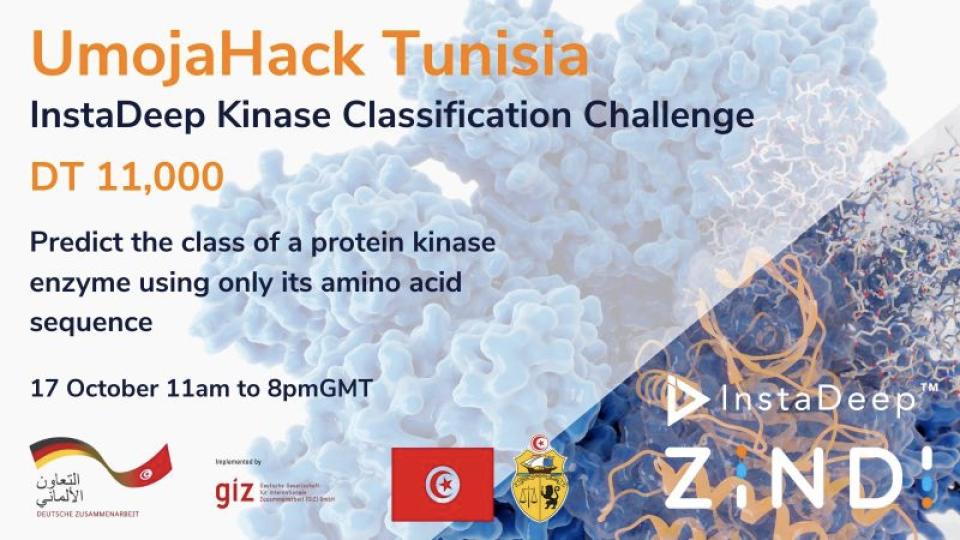Saturday 17th October saw the InstaDeep Kinase Classification Challenge by UmojaHack Africa unfold with 252 participants, representing 15 universities and engineering schools in Tunisia, working hard to solve a novel problem in biology using Machine Learning. Specifically, the hackathon participants were challenged to determine the structure, behaviour and interaction of enzymes and molecules to predict the protein kinase class given just the amino acid sequence.
Impressive results
The day-long hackathon saw university students from across Tunisia embrace the challenge, supported by InstaDeep’s AI Engineer Mohamed Jedidi (also a Zindi Ambassador) who explained the challenges and answered questions throughout the day. And impressive results soon started coming in. “This was an amazing race for the top three positions! All the students worked hard and were fighting until the very last minute! The submissions are truly impressive in terms of performance, code quality and methods delivered by the top three winners”, says Jedidi.
The winning teams were:
- 1st: Team EPT_OUTLIERS (Tunisia Polytechnic School (EPT)
- 2nd: Team GL4 (National Institute of Applied Science and Technology (INSAT)
- 3rd: Team H2A (National Engineering School of Tunis (ENIT)
Understanding the biological world around us
While the task at hand was to predict the specific function of protein kinases, the findings and models developed in this challenge could contribute to a better understanding of the world around us. The more we learn about the biological world surrounding us, the more aware we become of the gaps in our understanding. It is impossible to experimentally validate every finding, and simple similarity matching fails short when facing samples that are very different from the ones we understand. Marcin Skwark, Data Scientist at InstaDeep, explains:
“In addition to kinases from known organisms, there are vast numbers of metagenomic kinase sequences, e.g. the proteomic sequence data from environmental samples. Being able to quickly annotate sequences with a function, using machine learning, going beyond simple sequence similarity would be indispensable. We want to distinguish protein sequences and fragments to understand their behaviour, and for protein kinases, we only know what we have observed so far. Any additional data we uncover will make it easier for us to understand the function and evolution of the protein class, which could assist in a furthering understanding of the world around us. This could be immediately applicable for such problems as ageing, obesity and not at least cancer treatments. Anything we learn can ultimately be a life-saving opportunity”.
Disruptive AI Innovation
InstaDeep has worked closely with the African data science platform Zindi for years and is honoured to support this hackathon with curated data and as a gold sponsor alongside the Tunisian Government, represented by Mr Kais Mejri, Director General of Innovation and Technological Development at the Ministry of Industry and SMEs, the IEEE Tunisia Section, represented by Habib Kammoun, and GIZ (The Deutsche Gesellschaft für Internationale Zusammenarbeit).
A hackathon like the InstaDeep Kinase Classification Challenge is a great way for students to improve their skills in Machine Learning and to be surrounded by a high level of expertise.
“In Africa, innovation in deep tech will come from start-ups such as InstaDeep and Zindi working together with the wider community, including universities and engineering schools. In a world where AI is progressing exponentially, we have an opportunity to truly push the boundaries of what is possible”, says Karim Beguir, Co-Founder and CEO of InstaDeep.
Well done to all the participants and a huge congratulations to the winners! For information on upcoming competitions please see Zindi.africa.
Watch the introduction and explanation of the challenge below or on YouTube!

